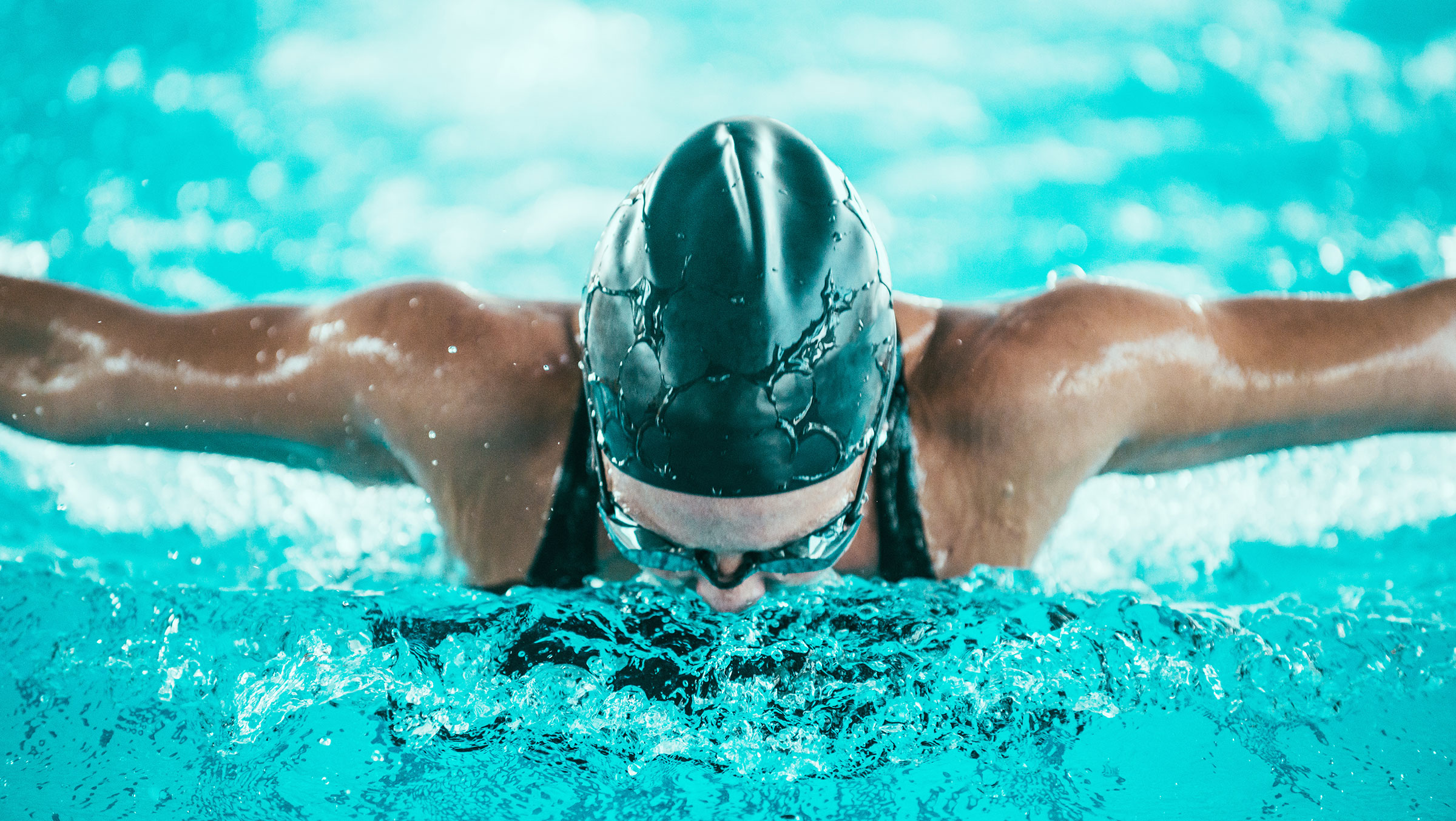1. Bring Mindfulness Into Your Day Stress and anxiety don’t just affect your mind—they impact your nervous system, sleep, recovery, and even how your body experiences pain. Mindfulness and meditation,
Seven Scapula-Focused Exercises to Help You Swim Faster

While many swimmers work hard to strengthen their shoulder joint, few do anything to optimize the shoulder blade itself. PT Max shares why this is important and what exercises you should start doing.

USAT LEVEL I COACH, ASCA LEVEL I COACH, USA SWIMMING COACH
Most overhead athletes, especially swimmers, know that strengthening the rotator cuff is important for performance. While rotator cuff strengthening is a vital part of maintaining shoulder joint stability and proper joint mechanics, many swimmers unfortunately overlook the shoulder blade, the scapula. All that work on stabilization at the shoulder joint/rotator cuff is pointless if the shoulder blade itself is not stable.
Understanding the Scapula
The scapula contains the glenoid fossa, where the humeral head sits and is actively anchored in by multiple structures, mainly the rotator cuff musculature. Because it does not have a direct articulation with the spine or ribs like a typical joint would, the scapula must be controlled by multiple muscles that anchor it to the axial skeleton in order to provide a stable platform for the humerus (arm) to move on.
Your posture has a big effect on scapular stabilization. For example, the common “forward head/rounded shoulder posture” forces the scapula to alter its path as it moves over a more rounded rib cage into a more forward position (adducted.) This causes the scapular stabilizers to sit in a stretched position, causing the muscles to fire outside of their optimal position and weaken them through the prolonged stretch.
Before you can start working to improve your scapular mobility for a stronger stroke, you first have to learn how to properly recruit the muscles of the scapula. I suggest reading my colleague Sean Swopes, PT, DPT, CSCS article, How to Activate Your Scapular Muscles to Alleviate Pain, to learn how to do this correctly and achieve optimal posture.
Seven Scapula-Focused Exercises to Help You Swim Faster
Once you understand exactly how the scapula needs to move, you can begin an exercise program that helps improve your scapular mobility and posture, creating a stronger platform for you shoulder to help you swim faster. Here are seven exercises I like to give my patients and swimmers who need to improve their scapular stability. The first two I explain here, while the final five can be found (with video) on homeprograms.net*.
- Step overs. Hold a good plank position with hands directly under your shoulders step your hand sideways up onto a small step then step up with the other hand and down on the other side. 3×10
- Prone 90/90s. While lying on the SB in the same position as for I’s, T’s or Y’s raise your arms up to shoulder height with good scapular squeeze then rotate your shoulders 90 degress so that your arms are even with your shoulders and hands up next to your head, hold this position for 2-3 sec then lower your hands down toward the floor and relax your arms. 3×10
- R: T/S Extensions and Supine Angels
- Serratus punches/push-ups
- Rows (isometric scap)
- I’s, T’s, Y’s
- SB walkouts
* Click here to access your exercise program on homeprograms.net. Your Patient Login information:
Your Email: scap.stability@rauschpt.net
Your Clinic ID: 1006






